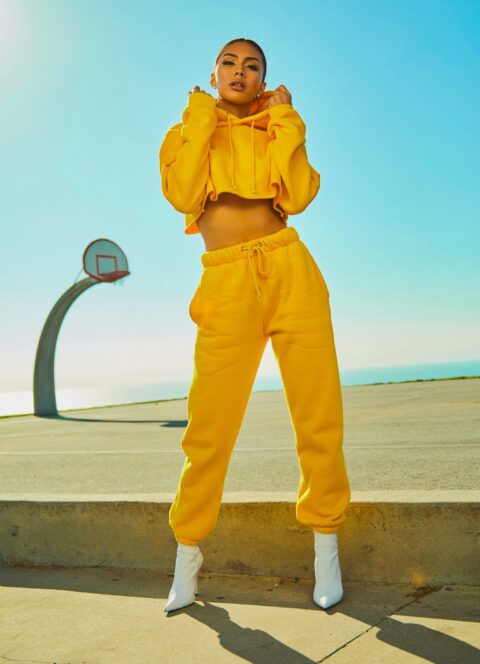Fashion is more than just clothing; it’s a powerful form of self-expression that reflects our identities, aspirations, and cultural affiliations. Understanding the psychology behind consumer behavior in fashion is crucial for brands and designers to connect with their target audience effectively.
1. Fashion and Identity: Clothing’s Role in Personal and Cultural Identities – IIAD
2. The Psychology Behind Consumer Behavior in Fashion: Factors Driving Purchasing Decisions – Campus Canvas – MIT University
The Fashion Psyche: Motivations and Desires
Consumers are driven by a complex interplay of psychological factors when making fashion choices.
1. The Impact of Fashion on Consumer Behavior: Socio-Psychological Influences – Yellowbrick
- Self-Concept and Identity: Clothing serves as a visual representation of self-concept, allowing individuals to project their desired identity. 1. Fashion Psychology: Clothing’s Mental Impact: Chitkara Blogs www.chitkara.edu.in
- Social Influence: Peer pressure, celebrity endorsements, and social media play a significant role in shaping fashion choices. 1. The Psychology Behind Consumer Behavior in Fashion: Factors Driving Purchasing Decisions – Campus Canvas – MIT University mituniversityindia.edu.in
- Emotional Connection: Fashion can evoke emotions and memories, influencing purchasing decisions. 1. How do emotions influence fashion design choices and preferences? | 5 Answers from Research papers – Typeset.io typeset.io
- Status and Aspiration: Luxury brands often appeal to consumers’ desire for social status and upward mobility. 1. How do luxury items contribute to the construction of social status? – Typeset.io typeset.io
The Role of Perception in Fashion
Perception is a powerful force in the fashion industry, shaping consumer preferences and brand loyalty.
- Brand Image: A strong brand identity can create a loyal customer base and influence purchasing decisions. 1. How Branding Affects Consumer Behavior: The Impact on Purchase Decisions lincolndigitalgroup.com
- Visual Appeal: The aesthetics of a product, including color, texture, and design, impact consumer perception.
- Price Perception: Consumers often associate higher prices with higher quality and prestige.
- Scarcity and Exclusivity: Limited edition items and exclusive collections can increase perceived value. 1. How rarity and exclusivity influence types of perceived value for luxury – SpringerLink link.springer.com
The Consumer Decision-Making Process
Understanding the steps consumers go through when making fashion purchases is essential for marketers.
1. Fashion Consumer Behaviour – Fashion designing and apparel industry
- Need Recognition: Identifying a gap in their wardrobe or a desire for a new style. 1. Consumer Decision Making Process – Fashion and Apparel Consumer Behavior iastate.pressbooks.pub
- Information Search: Researching fashion trends, brands, and products through various channels. 1. Consumer Decision Making Process – Fashion and Apparel Consumer Behavior iastate.pressbooks.pub
- Evaluation of Alternatives: Comparing different options based on factors like price, style, and brand reputation.
- Purchase Decision: Making a final choice and completing the purchase.
- Post-Purchase Evaluation: Assessing satisfaction with the purchase and considering future purchases.
The Impact of Social Media on Fashion
Social media has revolutionized the fashion industry, influencing consumer behavior in unprecedented ways.
1. The Ultimate Guide to Social Media in Fashion: Everything You Need to Know – Uphance
- Trendsetting: Social media platforms are used to launch and promote fashion trends. 1. Fashion Hour! How Social Media Plays a Role in Fashion Trends and “What’s Hot in 2023!” | Impact Magazine – Palomar College www.palomar.edu
- Influencer Marketing: Collaborations with influencers can significantly impact product sales.
- Visual Culture: Instagram and Pinterest have become visual platforms for showcasing fashion and inspiring consumers. 1. Instagram vs. Threads: A Fashion Enthusiast’s Dilemma – ApparelMagic apparelmagic.com
- Consumer Engagement: Social media allows brands to interact directly with consumers, gathering valuable feedback.
The Psychology of Luxury Brands
Luxury brands leverage psychological principles to create strong brand loyalty and desire.
- Exclusivity and Scarcity: Limited edition products and waiting lists enhance perceived value.
- Aspirational Marketing: Creating aspirational lifestyles associated with the brand.
- Brand Heritage: Emphasizing the brand’s history and craftsmanship to build trust and credibility.
Understanding the psychology of fashion is crucial for businesses to develop effective marketing strategies and create products that resonate with consumers. By delving into the motivations, desires, and perceptions of consumers, brands can build lasting relationships and drive sales.






